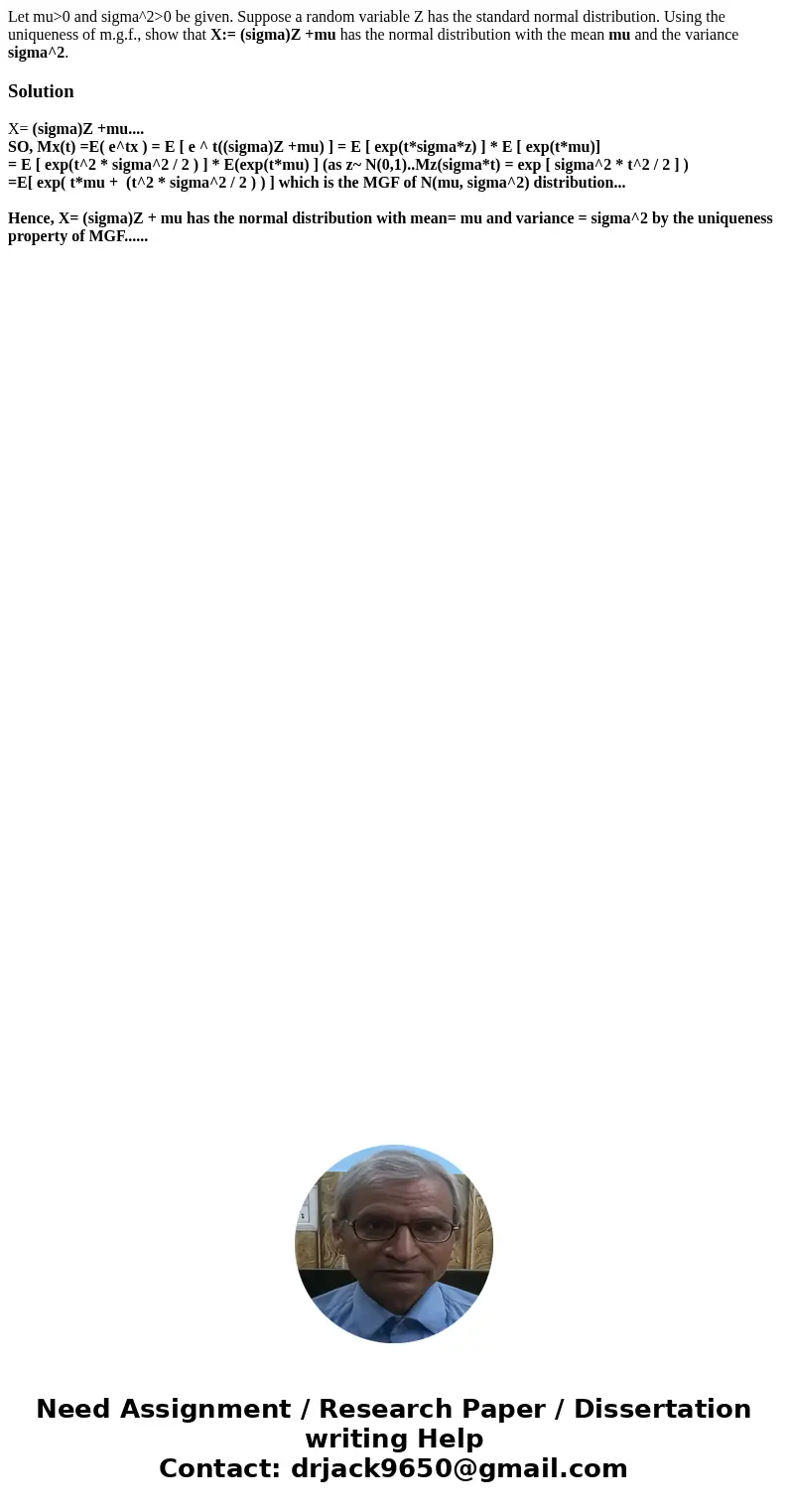Let mu0 and sigma20 be given Suppose a random variable Z has
Let mu>0 and sigma^2>0 be given. Suppose a random variable Z has the standard normal distribution. Using the uniqueness of m.g.f., show that X:= (sigma)Z +mu has the normal distribution with the mean mu and the variance sigma^2.
Solution
X= (sigma)Z +mu....
SO, Mx(t) =E( e^tx ) = E [ e ^ t((sigma)Z +mu) ] = E [ exp(t*sigma*z) ] * E [ exp(t*mu)]
= E [ exp(t^2 * sigma^2 / 2 ) ] * E(exp(t*mu) ] (as z~ N(0,1)..Mz(sigma*t) = exp [ sigma^2 * t^2 / 2 ] )
=E[ exp( t*mu + (t^2 * sigma^2 / 2 ) ) ] which is the MGF of N(mu, sigma^2) distribution...
Hence, X= (sigma)Z + mu has the normal distribution with mean= mu and variance = sigma^2 by the uniqueness property of MGF......

 Homework Sourse
Homework Sourse